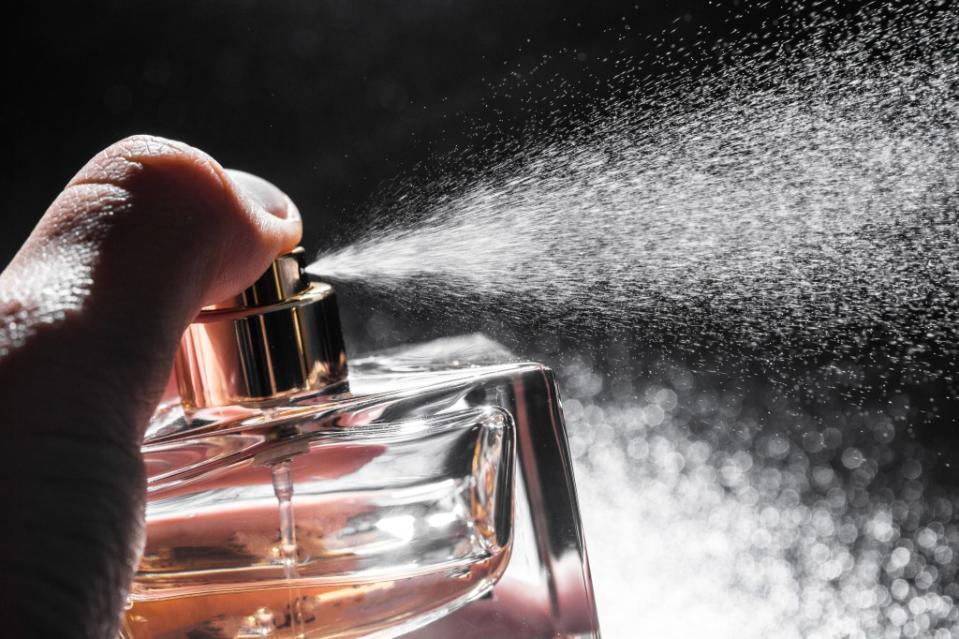Eau, no! Employers are pumping fragrance into offices to lure back employees

For many employees, going to the office stinks.
Now, employers are trying to in-scent-ivize workers with an inviting aroma wafting through their fluorescent-light-filled halls.
In New York City, in-person work has returned to 70% of pre-pandemic rates, and major companies like Amazon and Meta have implemented a back-to-the-office policy — much to the chagrin of employees.
So some businesses are sniffing out new ways to populate the office, including with signature scents.
Commercial real estate company Hines, for one, is introducing its custom fragrance profile to more than 20 office buildings worldwide this year after pumping the smell through its HVAC system at its Houston headquarters.
Co-CEO Laura Hines-Pierce told the Wall Street Journal this week that “each note was thoughtfully selected” to evoke “a sense of belonging” in any Hines space.
“Our mindset is, ‘How can we reframe the way people think about the office?’” Whitney Bossin Burns, the senior vice president of global client strategy at Hines, told the Journal.
“If we can make it a place where people can associate positive memories with it, we need to do that in every possible realm that we can,” she added.
Scent and memory are intrinsically interlinked — it’s why when you smell freshly baked cookies you may think of your mom during the holidays, or why catching a whiff of a particular perfume summons distant memories of a relative.

“People often do say that the sense of smell conjures up memories so well that they feel as if they were experiencing the event again,” Theresa L. White, a professor and chair of the department of psychology at Le Moyne College, told VeryWell Mind in 2021.
Smells are processed in the olfactory bulb, in the front of the brain. The information is sent to the limbic system, which contains the amygdala and hippocampus and is responsible for emotions and memories.
Because smells have “an incredible power to influence how you feel,” brands are using scents that communicate their core values and identity to form a custom “aroma profile,” Caroline Fabrigas, the CEO of Scent Marketing, told The Post on Thursday.
Through smell, companies want to sell a product or experience to customers. Think Abercrombie & Fitch’s “Fierce,” its signature yet overpowering musk of the early aughts — and how the brand, in an image revamp, replaced it with a white bergamot scent — or the soothing aroma of a Ritz-Carlton.

Employers, however, may want to inspire emotions or behaviors that are work-oriented.
“Another way to think about it is: What do you want to inspire in your workplace? Is it creativity? Is it collaboration? Is it a sense of comfort, or is it hyper-productivity and energy?” Fabrigas said, describing the emotional response to scents as “visceral.”
Companies like hers aim to curate bespoke scents that “will help to produce and inspire some of those feelings” in the workplace — for example, a sterile-smelling space post-pandemic.
Hines, meanwhile, sought an “‘I’ve arrived and am ready to be here’ kind of mentality,” explained Neohni Gilligan, the director of fragrance and product marketing for ScentAir, which worked with Hines.
“They wanted both uplifting and relaxing, which is not something that I get all the time,” Gilligan told the Wall Street Journal.

Formulating the perfect aroma is an exact science, explained Fabrigas. Citrus is energizing, but it can be too “sharp” and too “clean,” while vanilla is comforting, and jasmine can spur focus.
The changing of seasons may call for different scents, while some businesses might curate their signature smell based on ongoing projects, per the Journal.
Alan R. Hirsch, neurological director of the Smell & Taste Treatment and Research Foundation in Chicago, told the outlet that workplaces should avoid a combination of lavender and pumpkin pie because of its potential to arouse.
“We did a study looking at effects of odors on penile blood flow and found the No. 1 that enhanced blood flow was this combination,” Hirsch said. “I don’t know why.”
When scent marketing is done well, Fabrigas continued, it should serve as a “discreet” backdrop to everyday operations, not an overpowering stench. (Although some workers, per the Journal, have lamented their office’s newfound aroma profiles.)
“It should be your logo in the air or your values in the air,” Fabrigas noted.

